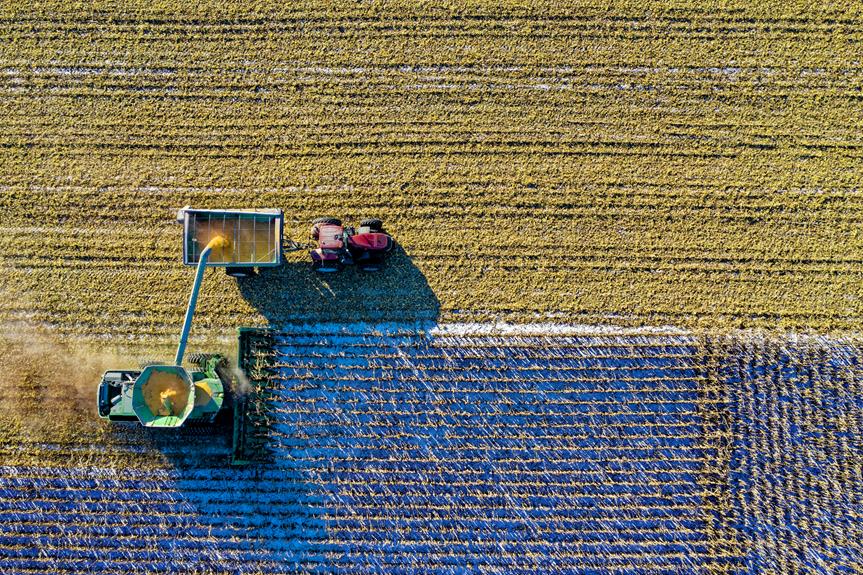Are you curious about why organic farming is crucial for improving soil health? Well, look no further!
In this article, we will explore the numerous benefits of organic farming and how it employs natural techniques to enhance soil quality.
Discover the important role of organic fertilizers and compost in nourishing the soil and learn how to manage soil erosion and nutrient loss.
Join us as we delve into the world of organic farming and its impact on long-term soil biodiversity.
Benefits of Organic Farming
To understand why organic farming is essential for improving soil health, you need to be aware of the numerous benefits it offers.
Organic farming provides a wide range of advantages that contribute to the overall well-being of the soil and the environment. One of the key benefits is the preservation of soil quality through the use of natural methods. Unlike conventional farming practices, organic farming avoids the use of synthetic fertilizers, pesticides, and genetically modified organisms (GMOs). This helps to maintain the natural balance of nutrients in the soil and prevent the accumulation of harmful chemicals.
Another significant benefit of organic farming is the promotion of soil conservation. By relying on organic matter, such as compost and manure, organic farmers enhance soil health and fertility. This not only improves the structure and water-holding capacity of the soil but also reduces erosion and runoff. Organic farming methods also encourage the growth of beneficial microorganisms and earthworms, which play a vital role in maintaining soil health and nutrient cycling.
Additionally, organic farming practices help to reduce pollution and protect water quality. The absence of synthetic chemicals in organic farming reduces the risk of chemical contamination in groundwater, rivers, and lakes. This not only benefits the environment but also ensures the safety of drinking water supplies. Furthermore, organic farming promotes biodiversity by providing habitats for pollinators, birds, and other wildlife.
Natural Techniques for Soil Improvement
By implementing natural techniques, you can further enhance soil health in organic farming. Here are four soil conservation techniques and sustainable agriculture methods that can help improve the quality of your soil:
- Crop Rotation: Rotating crops on a regular basis can prevent the depletion of specific nutrients in the soil. Different crops have different nutrient requirements, and rotating them helps maintain the overall fertility of the soil.
- Cover Cropping: Planting cover crops, such as legumes or grasses, during periods when the main crop isn't growing can help protect the soil from erosion, improve water retention, and add organic matter to the soil when they're eventually incorporated.
- Composting: Composting is the process of decomposing organic materials, such as kitchen scraps and yard waste, to create nutrient-rich compost. Adding compost to the soil improves its structure, increases water-holding capacity, and provides essential nutrients for plants.
- Mulching: Applying a layer of organic mulch, such as straw or wood chips, on the soil surface helps conserve moisture, suppresses weed growth, moderates soil temperature, and adds organic matter as it breaks down.
Implementing these natural techniques not only enhances soil health but also promotes sustainable agriculture practices, ensuring a healthier and more productive farming system.
Role of Organic Fertilizers and Compost
One important aspect to consider when improving soil health in organic farming is the use of organic fertilizers and compost. Organic fertilizers, such as manure, compost, and bone meal, offer numerous benefits for soil health. They provide essential nutrients to plants, improve soil structure, and promote microbial activity. Unlike synthetic fertilizers, organic fertilizers release nutrients slowly, preventing nutrient runoff and leaching. They also enhance the water-holding capacity of the soil, reducing the need for irrigation. Composting, on the other hand, plays a crucial role in improving soil health. It is the process of decomposing organic matter, such as food waste and yard trimmings, into nutrient-rich compost. Compost adds organic matter to the soil, improving its structure and fertility. It enhances the soil's ability to retain moisture, reduces erosion, and promotes the growth of beneficial soil organisms. Additionally, composting helps in reducing waste and greenhouse gas emissions, making it an environmentally friendly practice. By incorporating organic fertilizers and compost into organic farming practices, you can significantly improve soil health, resulting in healthier crops, increased yields, and a more sustainable farming system.
| Benefits of Organic Fertilizers | Impact of Composting on Soil Health | Environmental Benefits |
|---|---|---|
| Slow-release of nutrients | Enhances soil structure | Reduces waste |
| Promotes microbial activity | Improves soil fertility | Reduces greenhouse gas emissions |
| Prevents nutrient runoff | Increases water-holding capacity | |
| Reduces the need for irrigation | Reduces erosion |
Managing Soil Erosion and Nutrient Loss
Now, let's delve into how you can manage soil erosion and nutrient loss in your organic farming practices. Implementing sustainable farming practices and soil conservation techniques is crucial for maintaining the health and fertility of your soil. Here are four key strategies to consider:
- Contour plowing: Instead of plowing in straight lines, contour plowing involves following the natural contours of the land. This helps to slow down the flow of water, preventing erosion and allowing the soil to retain more moisture and nutrients.
- Cover cropping: Planting cover crops, such as legumes or grasses, during fallow periods can help protect the soil from erosion. These crops provide ground cover, reducing the impact of raindrops and preventing the loss of topsoil. Additionally, cover crops can fix nitrogen in the soil, enhancing its fertility.
- Mulching: Applying organic mulch, such as straw or wood chips, around your plants can help reduce soil erosion. The mulch acts as a protective barrier, preventing rainwater from washing away the soil. It also helps to retain moisture and regulate soil temperature.
- Crop rotation: Implementing a crop rotation system can help improve soil health and reduce nutrient loss. By rotating crops with different nutrient requirements, you can prevent the depletion of specific nutrients and promote a balanced nutrient cycle in the soil.
Enhancing Soil Biodiversity for Long-Term Health
To enhance the long-term health of your soil, it's crucial to actively promote and enhance soil biodiversity in your organic farming practices. Soil biodiversity refers to the variety and abundance of organisms living in the soil, including microorganisms, fungi, insects, worms, and larger animals. These organisms play a vital role in maintaining soil fertility, nutrient cycling, and overall soil health.
One of the main benefits of soil biodiversity is its role in soil conservation. By increasing the diversity of soil organisms, you can improve soil structure and stability, reducing the risk of erosion. Soil organisms, such as earthworms and bacteria, help to create pore spaces in the soil, improving water infiltration and reducing runoff. This, in turn, helps to prevent soil erosion and nutrient loss.
Furthermore, enhancing soil biodiversity through regenerative agriculture practices can also improve the overall health and productivity of your organic farm. When soil biodiversity is high, it creates a balanced and resilient ecosystem that can withstand environmental stresses such as drought, pests, and diseases. It also enhances nutrient cycling, making nutrients more available to plants and reducing the need for synthetic fertilizers.




